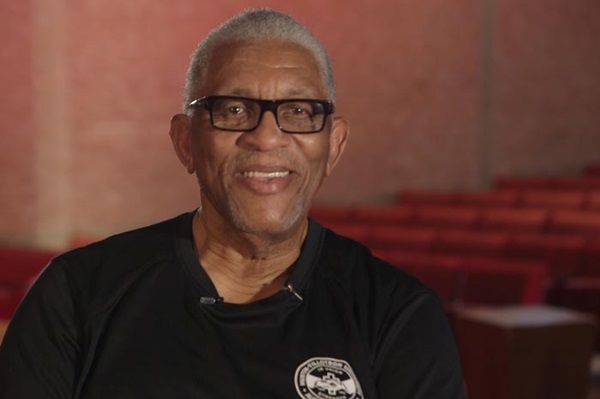Huston-Tillotson University in Austin, Texas, has always felt like home to Charles H. Dubra. The HTU graduate recently retired as the school's athletic director, after being at the university on and off for the past 46 years.
Raised in Gulfport, Mississippi, Dubra remembers his first trip to HTU in the late 1950s.
"Just being able to go to college in itself is going to change a life," he said. "Coming from Mississippi to Austin, Texas — you're talking about 1958, riding the bus with your money in your shoe. Coming to Huston-Tillotson, people received me so well."
So well, in fact, that Dubra decided to stay after graduation.
"When you get here and after you finish and you start working at a place like this, you don't want to go. You want to stay forever. You want to start giving back to somebody else. It's just something inside me," he said.
Huston-Tillotson is one of the 11 historically black colleges and universities supported by The United Methodist Church through its Black College Fund.
The Black College Fund, Dubra said, helped him reach his dreams, and being part of a historically black college set him up to succeed. He said the school's priority always has been students first.
"They know your name, where you're from. There's a bond you have you don't get anywhere else," he said. "I think that a lot of people who have made it now, if they hadn't had a chance at a black college, (they) would not be where they are today.
"The black college has proved we can compete on any level. It's prepared us to stand up to get ready to go to the next level — charging your minds like you do your cellphones."
Dubra's father was a United Methodist minister, so he grew up in the church and saw the importance of getting an education.
"(As United Methodists), we know kids need to be educated. That's something we've taken on over the years — trying to help young people become better citizens."
He said he's thankful for everything the church has done for him and the young people following in his footsteps
"If it wasn't for the BCF, I'd probably be working on a boat in Gulfport, Mississippi, trying to make a living," he said.
Instead, he's embarking on retirement. His plans include getting some much-needed rest, taking his wife on a cruise and spending time with extended family.
He'll also continue to be involved in his church, where he serves as director of music.
"I hope that I'm doing something. I try to be part of the community. I have grandkids now and have to be involved in that and just my church work," he said.
Dubra encourages United Methodists to continue to support the Black College Fund through their apportionments.
"Because of the Black College Fund, so many things have been possible for young black kids. … We take young people from all levels and try to take them wherever they are and (guide) them where they need to be in order to help put leaders in the community and the world in which we live."
Julie Dwyer, general church content editor, United Methodist Communications
One of seven apportioned giving opportunities of The United Methodist Church, the Black College Fund provides financial support to maintain solid, challenging academic programs; strong faculties; and well-equipped facilities at 11 United Methodist-related historically black colleges and universities. Please encourage your leaders and congregations to support the Black College Fund apportionment at 100 percent.





